News
THE IMPERATIVE OF CBN’S AUTONOMY
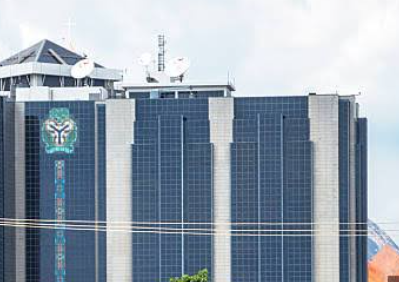
BY :IBRAHIM MODIBBOMphil.Ph.D
Under globalization and multi-cultural settings such as ours, Nigerians are under no illusion to the enormity of the myriad of challenges confronting the President Bola Tinubu Administration. In my opinion, anxiety and trepidation seems to trial the move by the National Assembly, to amend the provisions of the CBN Act of 2007. Industry watchers and members of the banking community fear that the attempt to amend the Act will erode confidence in the apex bank, have a negative impact on the banking industry and ultimately, affect the nation’s economy.
In the dynamic landscape of global economics, the independence of central banks stands as a cornerstone for maintaining sound macroeconomic stability and fostering confidence in financial markets. Across all major world economies, from the United States of America, United Kingdom, the developed Asian economies to the European Union, this principle is upheld as a vital aspect of prudent economic management. However, recent proposed amendments to the Central Bank of Nigeria (CBN) Act by the Nigerian Senate threaten to erode this independence or autonomy, putting Nigeria at odds with global best practices and jeopardizing its economic stability going forward. In this piece, we shall examine the critical reasons why preserving the autonomy of the CBN is imperative for Nigeria’s economic future.
It is crucial that we fully understand and appreciate the significance of maintaining the Central Bank’s independence. An independent central bank is critical for ensuring that monetary policy is conducted without political interference. This autonomy allows central banks to implement policies that focus on long-term economic health, such as controlling inflation, stabilizing the currency, and promoting sustainable economic growth. In major economies, central bank independence has been instrumental in achieving these goals. The Federal Reserve in the United States, the European Central Bank, and the Bank of England all operate independently of their respective governments, ensuring that monetary policy decisions are based on available economic data and analysis rather than political whims.
While commendably the idea of the proposed amendments to the CBN Act aim to enhance compliance and strengthen corporate governance, some of the key aspects pose significant threats to the bank’s autonomy. One of such proposal is the creation of a Coordinating Committee for Monetary and Fiscal Policies. This committee, dominated by fiscal authorities including the Ministry of Finance, would have a considerable influence on monetary policy decisions. Such an arrangement risks subordinating monetary policy to fiscal objectives, undermining the CBN’s ability to achieve its primary mandate of price stability in the economy. Apparently, this is a step in the wrong direction in the management of the Nigerian economy.
Fiscal policy, which is the cardinal responsibility or primary function of the Ministry of Finance, encompasses a range of activities related to government spending and taxation. This policy area involves the allocation of government resources, management of public funds, and implementation of tax regulations, all aimed at influencing the country’s economic conditions positively. While the effective coordination between fiscal and monetary policy is desirable, giving fiscal authorities dominance over the CBN compromises the bank’s ability to act independently. This fiscal dominance could lead to short-term policy decisions that prioritize immediate fiscal needs over long-term economic stability. For instance, the government might pressure the CBN to keep interest rates artificially low to reduce borrowing costs, even if such a policy could lead to higher inflation and other economic vulnerabilities.
Another alarming aspect of the current amendment process at the hallowed precincts of the Nigerian Senate pertains to the insistence on subjecting the Central Bank of Nigeria’s yearly budget to approval by the National Assembly. This proposed measure raises significant apprehensions regarding the potential politicization and interference in the operations of the Central Bank of Nigeria. The approval process could result in undue delays of monetary policy decisions, hindering the CBN’s ability to respond swiftly and effectively to economic challenges. In an environment where rapid decision-making is often essential, this could prove detrimental to Nigeria’s economic health.
Global best practices emphasize the need for central bank independence to ensure economic stability and investor confidence. Across the world today, major and emerging economies adopt this framework to ensure a situation of a more stable and predictable economic environments. For Nigeria to diverge from this path would not only isolate it from the global business community but also undermine investor confidence, leading to potential capital flight, increased borrowing costs from multilateral institutions, and a general loss of economic credibility as well as downward grading by global rating organizations.
The proposed amendments, particularly the inclusion of the Coordinating Committee for Monetary and Fiscal Policies, represent a concerning shift towards fiscal dominance. This committee’s role in determining interest rates on the CBN’s temporary advances to the federal government is especially problematic. With the committee chaired by the Minister of Finance as proposed in the current amendment and ostensibly dominated by fiscal authorities, there is a clear conflict of interest. Such a structure inherently favors fiscal objectives over monetary prudence, jeopardizing the delicate balance and the thin line required for sound macroeconomic management. The CBN should rather be encouraged to foster effective prudential guidelines in management of its advances to the federal government as enshrined in the current Act.
The potential for political interference in the CBN’s operations extends beyond the management of the monetary policy. It threatens the very fabric of Nigeria’s economic governance. An autonomous central bank acts as a check on government excesses, ensuring that fiscal policy does not compromise long-term economic stability. By undermining the institutional and operational autonomy, the proposed amendments risk eroding this safeguard and shield, potentially leading to economic policies driven by political rather than economic considerations.
While the Nigerian Senate’s intentions to amend the CBN Act may stem from a desire to enhance governance and performance by the apex, the proposed measures threaten to undermine the very foundation of effective economic management. Eroding the CBN’s autonomy not only contradicts global best practices but also risks plunging Nigeria into a cycle of political interference and economic quagmire.
It is therefore imperative that the Senate reconsider some key aspects of these amendments as enunciated here, preserving the CBN’s independence as a cornerstone of Nigeria’s economic policy framework. Only by doing so can Nigeria ensure a stable, predictable, and resilient economic future, in line with global standards and best practices. The nation’s economic health and international standing depend on it.
While admitting that some of the proposed amendments to the CBN Act are commendable as they are designed to entrench the culture of compliance, strengthen corporate governance, and reposition the apex bank for improved performance in attaining its mandate, most analysts however, say some of the major proposed amendments to the CBN Act appear to erode the bank’s autonomy and weaken the independence of monetary policy, at variance with international best practices.
For example, the proposed coordinating committee for monetary and fiscal policies concerning monetary policy in their opinion will undermine the apex bank’s independence and capacity in achieving its price stability mandate, including fiscal and monetary policy coordination as well as undermining the CBN’s operational independence and weaken the apex bank’s flexibility in deploying appropriate policy frameworks in a dynamic economic environment to achieving its core mandate.
Similarly, the proposed amendment to the CBN Act by the lawmakers will promote undue political interference in purely economic matters, as the fiscal authority would dominate the proposed committee’s membership and chairmanship. Subjecting the CBN’s budget to National Assembly approval will also undermine its institutional autonomy and introduce the potential for political interference in monetary policy which could lead to significant delays in monetary policy implementation and hinder swift monetary policy responses with potential negative implications for macro-economic stability.
According to Dr. Williams Puye an economic and financial expert, some of the proposed amendments threaten the independence and operational autonomy of the CBN as the country’s monetary authority. He asserted that the inclusion of the coordinating committee for monetary and fiscal policies in determining the rates of interest on the apex bank’s temporary advances to the federal government will not only erode the bank’s operational autonomy, but also breed conflict of interest since the committee is chaired by the minister and dominated by fiscal actors.
The now controversial amendment bill to the CBN Act is sponsored by Senator Mukhail Adetokunbo Abiru and co-sponsored by all 41 senators of the Senate Committee on Banking, Insurance and other Financial Institutions and proposes the establishment of a 7-member coordinating committee for monetary and fiscal policies to be chaired by the minister of finance, to among other things set internally consistent targets of monetary and fiscal policies that are conducive to controlling inflation and promoting financial conditions for sustainable economic growth.
It sets the tenure of the CBN Governor and Deputy Governors at a single non-renewable term of six years, appointment of a minimum of one career staff of the bank in the committee of governors, the appointment of at least one female among the External Directors as a Board member, that the five external directors should hold office for a non-renewable term of five years (one year less than the six-year tenure of the governor and deputy governors.
The amendment further proposes the establishment of the position of chief compliance officer in the rank of a Deputy governor, who reports directly to the Board and may occasionally be summoned to appear before the relevant committee of the National Assembly, limit temporary advances to the federal government, including modalities for the issuance of new legal tender to replace existing ones, providing that the withdrawal of the old legal tender should be carried out in phases and in a manner that does not cause any distortion to economic activities, while the apex bank should be in possession of sufficient new currency, not less than 70 percent of the old stock of currency to be withdrawn before embarking on such a programme.
In the area of Board governance, based on the fact that the CBN governor also serves as the Board chairman, the bill proposes that the board committees should be headed by non-executive directors instead of the deputy governors. The bill further proposes to amend the paid-up capital of CBN to N1trillion and that this figure may be increased from time to time by such amount as the government may approve either by way of transfers from the general reserve fund or by such other means as the government, in consultation with the board may approve.
Another notable provision of the bill states that the CBN governor must appears on a semi-annual basis whilst the National Assembly in the exercise of its constitutional duties should reserve the power to invite the governor to make presentations from time to time as the need arises. It also proposes the publishing of a monetary policy report and an interim financial report every six months that should be submitted to the president and the National Assembly within one month of the reference period.
It adds that where the governor fails to make a report to the president and the National Assembly as required by law, he shall be served with a warning letter by the National Assembly and if the failure persists, by a recommendation from the National Assembly for the governor’s suspension from office by the president.
Most significantly, the bill proposes that the budget approved by the CBN board can only be implemented upon the consideration and approval of the relevant committees of the National Assembly.
It goes without saying that safeguarding the independence of the Central Bank of Nigeria is crucial for maintaining the country’s overall economic stability and fostering investor confidence with a good mix of monetary policy tools. The proposed amendments to the CBN Act, particularly those that threaten the bank’s autonomy, must be reconsidered to ensure Nigeria’s economic future remains secure and safe. The Nigerian Senate must be careful not to exacerbate the current economic woes in the country. Hence, by upholding the principle of central bank independence, Nigeria can align itself with global best practices and ensure a stable and prosperous economic environment for its citizens now and in the future.
Dr. Modibbo is an Abuja based Journalist & Social Commentator on National Issues.
News
“Stop crying over split milk”, Rivers Ijaw group tells INC, asks Okaba to step aside
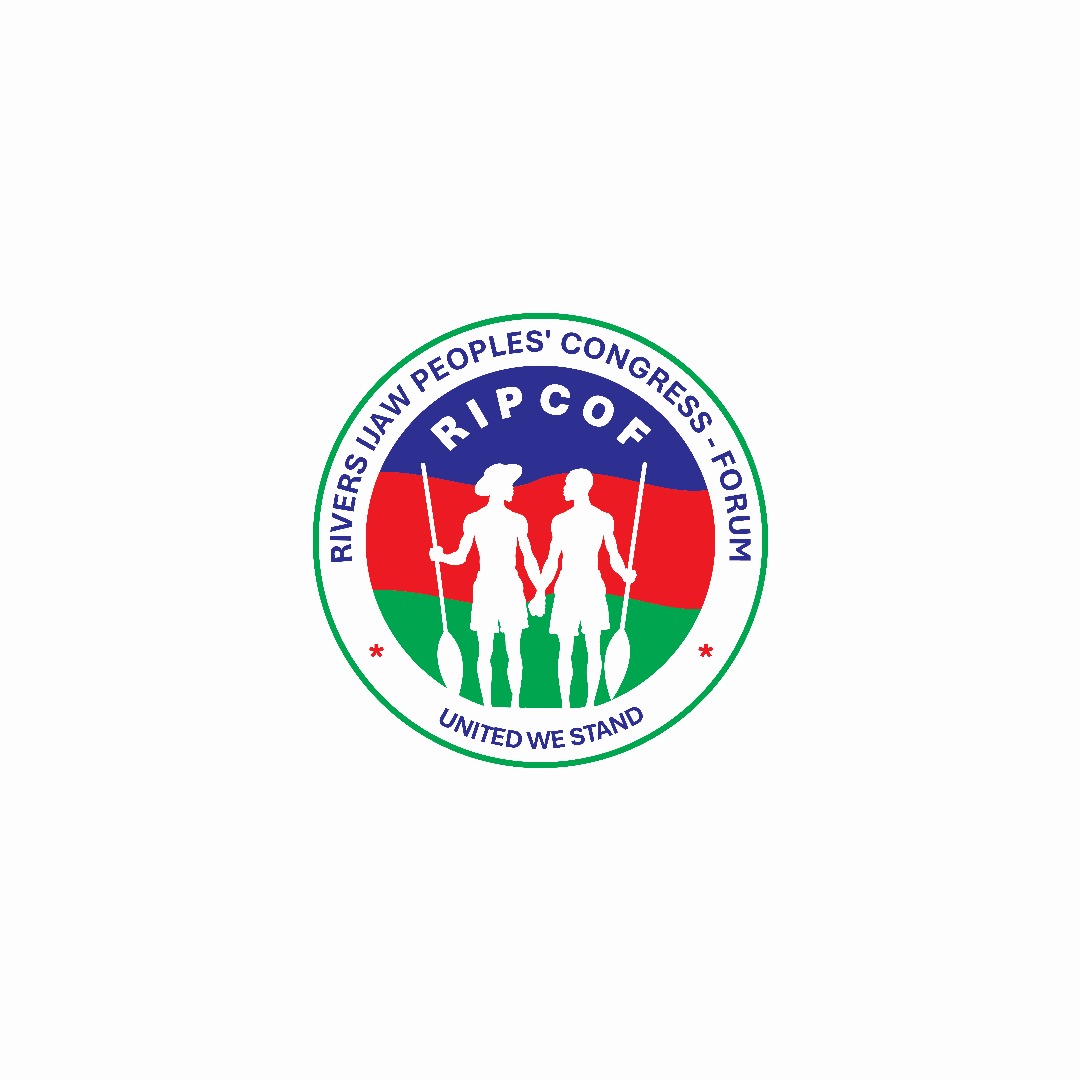
…declares INC stood aloof as Rivers crisis escalates
…took side with Fubara
…failed to be proactive
…Prof Okaba not in control of those he presides over
The Rivers Ijaw People’s Congress, RIPCO has advised the Ijaw National Congress, INC to stop shedding tears over a split milk as it failed to be proactive from the onset.
RIPCO also declared that at the tutelage stage of the Rivers crisis, INC stood aloof as it escalated beyond repairs.
They also demanded that INC president, Professor Benjamin Okaba should step aside to allow Ijaw people receive fresh breath.
This was contained in a statement jointly signed by leaders of RIPCO Senator George Thompson Sekibo, Leader Rivers Ijaw Peoples’ Congress, Hon. Rowland Sekibo Director General, Hon Erastus Awortu, Secretary stating that:
“The attention of the Rivers Ijaw People’s Congress (RIPCO) has been drawn to the statements and communiqué issued during the emergency meeting styled “All inclusive Critical Stakeholders Meeting on the State of the Ijaw Nation, particularly regarding the ongoing political crisis in Rivers State”, held on Wednesday, 26th March 2025, at the Ijaw House in Yenagoa, Bayelsa State.
“It is generally commendable for the Ijaw community to convene and discuss issues that impact their collective existence.
“However, it is disheartening to witness respected elders lamenting over spilt milk from a leaking bowl when they could mend the bowl before any spillage occurred.
“While we do not wish to engage in disputes with the Ijaw National Congress or the “All-inclusive Critical Stakeholders,” it is concerning that the President of the Ijaw National Congress, Prof. Benjamin Ogele Okaba, seems to involve innocent elders in a narrative that could tarnish their hard-earned reputations.
” This situation raises questions about accountability and leadership as they attempt to address problems in which they are complicit in their escalation.
“Moreover, this narrative highlights a broader issue within their leadership dynamics. As Prof. Okaba may recognise, attempting to “close the barn door after the horse has bolted” is an ineffective response to critical situations.
“It is disheartening when elders, who are expected to lead with wisdom and foresight, fail to act decisively during crises. Instead of taking responsibility for their inaction, they shift blame onto others, neglecting their role in preventing such crises.
“These reactions undermine their credibility and set a poor example for the Ijaw people, who look to them for guidance and stability in times of uncertainty.
To this end RIPCO seeks to highlight the concerning motivations behind Prof. Benjamin Ogele Okaba and his associates, suggesting that they may be exploiting the ongoing crisis in Rivers State for personal gain.
“If they were genuinely committed to resolving the issues affecting the state, they would have convened the all-inclusive critical stakeholders meeting earlier rather than waiting for the situation to escalate.
“The turmoil unfolding in Rivers State appears to align with Prof. Benjamin Okaba and his co-travellers interests, raising concerns about his dedication to preventing conflict and fostering peace. Rather than taking significant steps toward resolution, their actions seem more reactive than proactive.
“To illuminate this troubling pattern, the Rivers Ijaw People’s Congress wishes to share excerpts from Prof. Okaba’s opening speech and the Resolutions at the Critical Stakeholders’ meeting he organised, which he asserts aims to find a lasting solution to the crisis.
1. Paragraph 5 of his speech states: “The recent imposition of emergency rule and the suspension of our dear son, His Excellency Governor Siminalayi Fubara, under whatever guise, constitute a grave assault on the principles of justice, democratic governance, and the sanctity of the people’s mandate.
” This audacious infraction on our people in Rivers State (who have been out of governance for 24 years) is not a partisan issue; it is a fundamental challenge to the constitutional framework that safeguards the rights and autonomy of every Nigerian citizen.
” It is a clarion call for the Ijaw Nation, and all advocates of justice at the national and international levels, to stand unequivocally in defence of constitutional order and the inherent right of every ethnic nationality to prosper without coercion or suppression”.
“The Rivers Ijaw People’s Congress (RIPCO) considers the statement as crying over spilt milk in the light of recent events in Rivers State.
“On June 04, 2024, a delegation of over two hundred members of RIPCO met with Prof. Benjamin Okaba in Ijaw House, Yenagoa. The primary purpose of this meeting was to appeal for his assistance in assembling a coalition of Ijaw leaders to pursue a peaceful resolution to the ongoing crisis in Rivers State.
” Recognising the urgency of the situation, RIPCO also held discussions with the leadership of the Ijaw Youth Council, resulting in a mutual agreement that both organisations would collaborate constructively to intervene in the crisis.
“Just a week later, Prof. Okaba visited Rivers State and met with the leadership of RIPCO to discuss and agree on the way forward. However, the anticipated path toward a peaceful resolution took an unexpected turn. Rather than championing the previously agreed upon collaborative efforts, Prof. Okaba aligned himself with Governor Sim Fubara and became engrossed in the crisis.
“This shift in allegiance, particularly his public criticisms of His Excellency Nyesom Ezenwo Wike, further escalated the delicate situation.
“The ramifications of this decision have been significant, undermining the collective pursuit of peace and stability in Rivers State and raising concerns about the future of Ijaw unity and leadership in addressing the pressing challenges facing them.
” It may not be out of context to assume that Prof. Okaba lacks the qualities necessary to lead the people. He does not appear to be an effective manager of those he presides over.
2. Paragraph 6 of his speech reads thus: “The recent unguided, disgustive, inflammatory and provocative utterances and actions taken against us by that Ikwerre-born inconsequential drunk and cheap drug addict, with the support of a few of our own Rivers Ijaw brothers, and in connivance with the powers-that-be in the three arms of our government are condemnable.
“These actions and inactions, emanating from these highly placed and sensitive quarters, have only exacerbated our fury. These also constitute the denigration, oppression, and mockery of our collective reputation”.
The Rivers Ijaw People’s Congress strongly condemns Prof. Benjamin Okaba’s recent provocative statements given above. It is particularly troubling that the Ijaw elders who were convened to seek a resolution to the ongoing crisis did not reprimand Prof. Okaba for his comments. Instead, they applauded him, indicating a troubling disconnect in leadership.
” If the Ijaw National Congress (INC) is genuinely committed to facilitating dialogue and resolving the issues in Rivers State, it must first refrain from using derisive language towards those it considers part of the problem.
“Such arrogance undermines the potential for constructive dialogue and alienates potential allies in the quest for peace. It is essential to remind Prof. Okaba and his team that the ability to engage in respectful and meaningful conversation is a crucial component of the negotiation process.
“The use of inflammatory rhetoric and emotions rarely produces productive outcomes—just as a person seeking peace should communicate with humility and respect rather than resorting to provocation based on emotion.
” If the INC truly wishes to address the crisis and pave the way for a sustainable and peaceful resolution, it must adopt a more diplomatic approach that encourages collaboration rather than conflict.
3. Their Resolution 2 states thus: “The INC appreciates the overwhelming support from Rivers people of different ethnic backgrounds, including Ikwerre, Ogoni, Ekpeye, Ogba, Etche, Ndoni, and Egbema, who have stood by Governor Fubara throughout this crisis.
This solidarity reinforces the fact that the political turmoil is not an ethnic conflict and that the Ijaw Nation has not declared hostilities against any individual or ethnic group. The INC remains committed to peace, unity, and the overall stability of Rivers State and Nigeria”.
“The general public is invited to reflect on whether their Resolution 2 aligns with their actions, particularly regarding the potential for conflict against individuals or ethnic groups.
“It is crucial to recognise that the fight against an individual or ethnic group is not only expressed through rhetoric but through actions.
“The recent burial procession staged against a living “Nyesom Wike” in Bomadi, Delta State, serves as a striking example of how such actions can incite discord.
“One must consider whether the Ijaw elders would be satisfied if their leaders were subjected to such condemnable indignity. This incident highlights the need for accountability among public figures like Prof. Benjamin Okaba, who should not mislead the public regarding his awareness of these provocative events.
“Prof. Benjamin Okaba and his associates must recognise that their actions contribute to a narrative of animosity towards specific individuals and ethnicities, thereby jeopardising the socio-political fabric of the Ijaw community in Rivers State.
“The Ijaws in Rivers State, who rely on harmonious relationships with various ethnic groups for their daily existence and political stability, deserve leaders who promote unity rather than division.
” The implications of such actions extend far beyond immediate grievances, as they threaten to unravel the delicate balance of coexistence essential for all parties involved.
“The Ijaw people must remain vigilant and discerning, ensuring that their leaders act in ways that foster peace and understanding within their ethnicity and beyond.
4. Their Observation 5 before the Resolutions states thus: “While acknowledging Barr. Nyesom Wike’s role in the election of Gov. Siminilayi (Ijaw), the INC, urged Wike to reciprocate the goodwill by supporting Fubara’s administration, just as Ijaws had backed him during his tenure”.
If their fifth observation was indeed known before the formulation of the six-point resolution, one must question the efforts made by the Ijaw leadership from November 2023, when the crisis began, to March 26, 2025, when the critical stakeholders’ meeting convened.
It is crucial to investigate whether the Ijaw leaders or the leadership of the Ijaw National Council (INC) attempted to engage His Excellency Nyesom Wike in any dialogue to determine the underlying causes of the discord between him and his political son.
Given Wike’s significant influence in the rise of Governor Siminilayi Fubara, it is puzzling that no concerted effort for engagement has taken place.
The Rivers Ijaw People’s Congress (RIPCO) firmly asserts that the actions of the INC leadership contradict their stated fifth observation, thereby rendering any attacks on Nyesom Wike unjustified, especially considering his support for a fellow Ijaw son to become a governor of Rivers State after 24 years.
Furthermore, Prof. Okaba and his dedicated team must recognise that when we respond to goodwill with hostility, we reduce the chances of receiving further goodwill in return.
The principle of reciprocity is essential for fostering harmonious relationships. The INC should be mindful of the peaceful coexistence of the Ijaws with other ethnic groups in Rivers State.
The next issue that draws RIPCO’s attention in the Ijaw Critical Stakeholders meeting is the call for dialogue by the Governor of Bayelsa State, His Excellency Senator Douye Diri, who, in his speech, states:
“The declaration of the state of emergency in Rivers State, alongside the suspension of the governor, the deputy governor and the state house of assembly, has generated concerns.
“As chairman of the south-south governor’s forum, I asked the president at that time to reconsider his stance and allow for dialogue amongst the feuding parties. And in conclusion, in that publication, I stated that the time for dialogue is now. …. seeing what has happened, again, I re-instate that this is the time for dialogue because it is all a lose-lose situation for the people of Rivers State, and I call on the National Assembly and Mr President to waste no time in inaugurating the committee of eminent personalities, that will immediately intervene and bring peace and bring the constituted government of Rivers State back to office”.
This call for dialogue is commendable and reflects a necessary approach to addressing the ongoing crisis confronting the State. His Excellency’s acknowledgement of the importance of dialogue is a positive step toward finding a resolution. However, it raises pertinent questions about his engagement during the critical period since the crisis first emerged. As the foremost Ijaw leader, one would expect a more proactive stance during these turbulent times rather than wait till now. However, it is better late than never.
It is also worth noting that the Rivers Ijaw People’s Congress made several attempts to meet with him, particularly while discussing with leaders of the Ijaw National Congress (INC) and the Ijaw Youth Council (IYC). Unfortunately, those efforts were met with silence, which may have further compounded the distress of the people he represents. While it is encouraging that he has finally acknowledged the need for dialogue, he urgently needs to take immediate and decisive actions to convene this dialogue and promote meaningful engagement with the involved stakeholders to bring a lasting solution to the crisis.
Having assessed the situation in Rivers State, the Rivers Ijaw People’s Congress (RIPCO) wishes to state as follows:
1. The Rivers Ijaw People‘s Congress condemnns the provocative statements made during the all-inclusive critical stakeholders meeting, emphasising that insulting and casting aspersions on perceived enemies is not the solution to the problems and cannot bring about the lasting resolution desired.
2. RIPCO further condemns the ineptitude and lackadaisical approach of the Ijaw National Congress leadership in managing the crisis in Rivers State, viewing them as incompetent in finding a lasting solution to the issue.
3. The Rivers Ijaw People’s Congress states unequivocally that the current poor leadership of the INC has not only succeeded in factionalising the once-united Ijaw nation but has also damaged the harmonious collaboration between the Ijaws and other ethnic nationalities. Therefore, RIPCO calls on Professor Okaba to step aside as President of INC before he drives the Ijaw nation into further conflicts both internally and with other ethnic nationalities.
4. The Rivers Ijaw People’s Congress advises all feuding parties to take advantage of the window provided by the state of emergency and commence a roundtable discussion to find a lasting solution to this impasse.
5. The Rivers Ijaw People’s Congress fully supports the President of the Federal Republic of Nigeria, His Excellency Bola Ahmed Tinubu, in declaring a state of emergency in Rivers State. His action has averted unimaginable consequences, such as destroying oil and gas infrastructure and a major physical clash between the warring political groups that could have set Rivers State and Nigeria backwards.
6. The Rivers Ijaw People’s Congress congratulates His Excellency Vice Admiral Ibok-Ete Ekwe Ibas on his appointment as the Sole Administrator of Rivers State and hereby pledges to give him every support in his efforts to unite the state for the common good of all.
News
Video: After father’s death, Kemi Olunloyo announces she is no longer part of the Olunloyo family, declined condolences
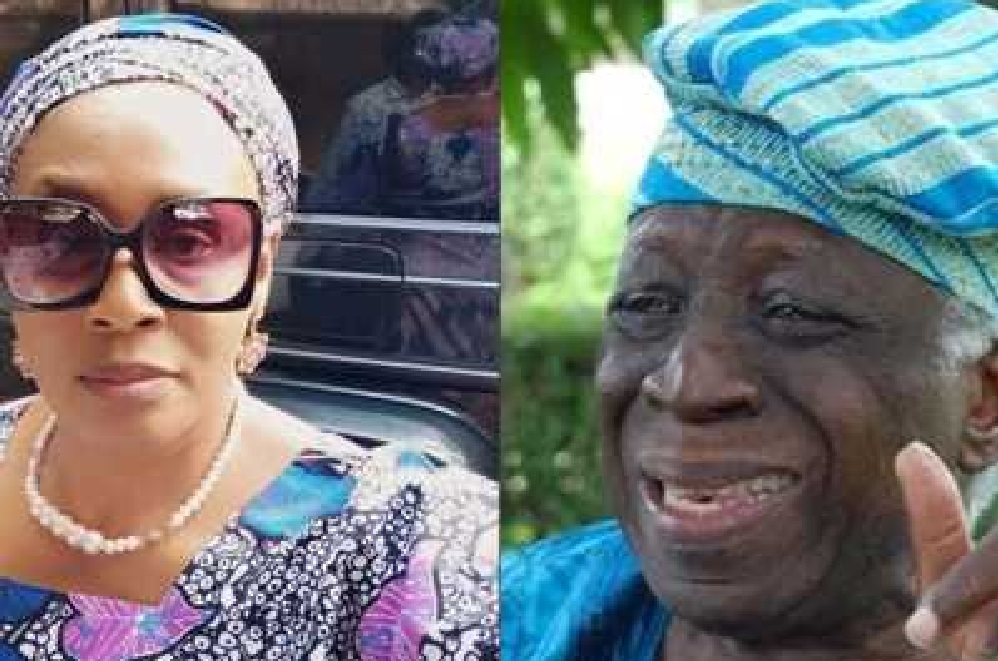
Kemi Olunloyo, daughter of the late former Oyo State governor Dr. Victor Omololu Olunloyo, has publicly declined condolences following her father’s death on Sunday, April 6.
The controversial media personality took to her Facebook page on Wednesday to express her stance, stating that she no longer associates with the Olunloyo family and had cut ties since 2024. “I am NOT part of the Olunloyo family anymore,” she declared. “I told you in 2024 that I would never return to Nigeria, even if my parents died.”
Through a series of Facebook posts and TikTok videos, Kemi shared deeply personal accounts, alleging a history of emotional and physical abuse by her late father. While she claimed to have forgiven him, she maintained that she would not be mourning with others. “I am not accepting anybody’s condolences because I am not condoling with anybody,” she stated. “If you want to condole with my father or his family, go to Facebook.com/omololuolunloyo.”
Kemi painted a complex picture of her father, describing him as a dual personality—one celebrated by the public, another who she says caused irreparable damage to his family. “My father destroyed our family unit,” she said. “He tortured us emotionally and physically. He ruined our lives.”
She also alleged that Dr. Olunloyo was deeply involved in occult practices and claimed she confronted him about it on his 80th birthday, after which he sought spiritual transformation through Pastor E.A. Adeboye.
Further allegations included claims that family turmoil began after her father married Ronke Sonaike (later Aderonke Omololu Olunloyo), who had initially been part of his 1983 campaign team. Kemi blamed this relationship for triggering a series of family crises, including a rift with her mother and strained sibling relationships.
Kemi accused her stepmother of isolating their father after a stroke in 2021, stating that many family members were denied access to him in his final years. She also made startling claims about past attempts to harm her mother and supernatural confrontations within the household.
Despite the heavy accusations, Kemi maintained a spiritual perspective. “I know I’m special and I know what God brought me here for,” she said. “They tried to kill my story but they didn’t.”
Dr. Victor Omololu Olunloyo, a distinguished mathematician and politician, leaves behind a complicated legacy—celebrated by the public, but remembered differently within parts of his family.
Watch video below:
News
10 countries where slavery still exists
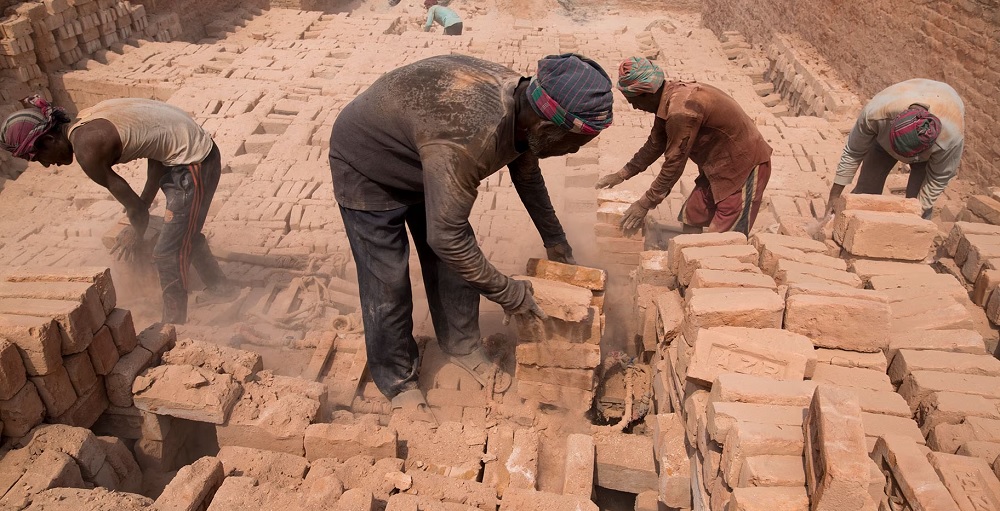
Despite the fact that slavery is illegal in most parts of the world, modern slavery is still a major trend in some countries due to various reasons like weak laws, corruption and even unwillingness of the security agencies to execute their jobs right.
These inhumane acts of modern slavery happen in various ways, such as forced labor, human trafficking, forced marriage, debt bondage and child slavery.
There has been a move to eradicate modern slavery by 2030 all over the world by the International Labour Organization.
These are 10 countries that slavery or modern slavery practices are still reported to be a significant issue according to ‘Global Slavery Index’:
India
India is a country with diverse cultures unique to the indigenous people of India some of these cultures support forced marriages and often leads to the law turning a blind eye. India is the nation with the highest number of modern slaves in the world. These acts of slavery occur through forced marriages, bonded labour due to the high rate of poverty and also child trafficking.
China
China is known as an industrious country and the use of exploitative job opportunities for migrants is not scarce. China also has the issue of forced labour, woman and children trafficking for sexual exploitation.
North Korea
North Korea has the highest percentage of enslaved people relative to it population with 2,696,000 slaves and approximately 26 million people as at 2024. North Korea practices compulsory military service, and state-imposed slave labour ranking third on the list.
Pakistan
Pakistan’s major issue is the outbreak of bonded labour. People are forced to pay off small loans through hard labour for a prolonged period of time. Poor families in Pakistan are often unable to pay back debts and this leads to women being forced into prostitution while children are used as domestic workers or beggars.
Russia
The use of Asian migrants for forced labour is a major issue in Russia and this has resulted in the skyrocketing of forced labour in Russia. Migrants could sometimes lose their passports to Russian officials to prevent them from escaping.
Indonesia
Indonesia battles with a high rate of child labour. Farming and fishing are the two major areas that are of high demand for child and forced labour.
Nigeria
Forced marriages is not uncommon in Nigeria, same applies to human trafficking and child labour. Women and children are trafficked out of the country to become sex workers.
Turkey
Turkey has the issue of child labour, sexual exploitation and even migrant worker exploitation. The nation is a hotspot for refugee migrants who could fall into the hands of predators looking to exploit them
Bangladesh
The garment industry in Bangladesh is a major source of revenue and the rigorous nature of production entails workers and sometimes children toiling for hours in sweatshops
United States
The United States has a major issue with human trafficking, Migrant workers exploitation and even sex trafficking, migrants especially those without legal status, are often exploited in the agricultural and construction sectors.
-
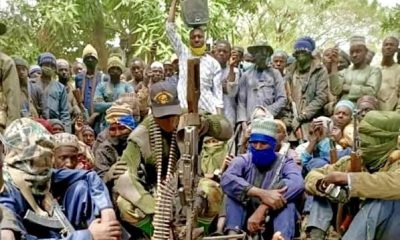
 News17 hours ago
News17 hours agoBanditry:” I was chained for 32days while in their den, killed my wife as I watch-Nat’l Assembly DD narrates experience
-

 News12 hours ago
News12 hours agoPolice Inspector Slumps, Dies While Celebrating After Arsenal Wallop Real Madrid 3-0
-

 News18 hours ago
News18 hours agoUS revokes more than 500 foreign student visas
-

 News19 hours ago
News19 hours agoIbas picks administrators for 23 Rivers LGs(SEE list)
-

 Economy24 hours ago
Economy24 hours agoMobile Money transactions hit $1.68trn in one year
-

 News19 hours ago
News19 hours agoSAD! Roof Collapses At Nightclub Kills 44, Including province Gov
-

 News11 hours ago
News11 hours agoSAD! APC lawmaker dies while asleep
-

 Metro19 hours ago
Metro19 hours agoINSECURITY! Gunmen Attack Abuja-Bound GUO Bus, Passengers Injured





